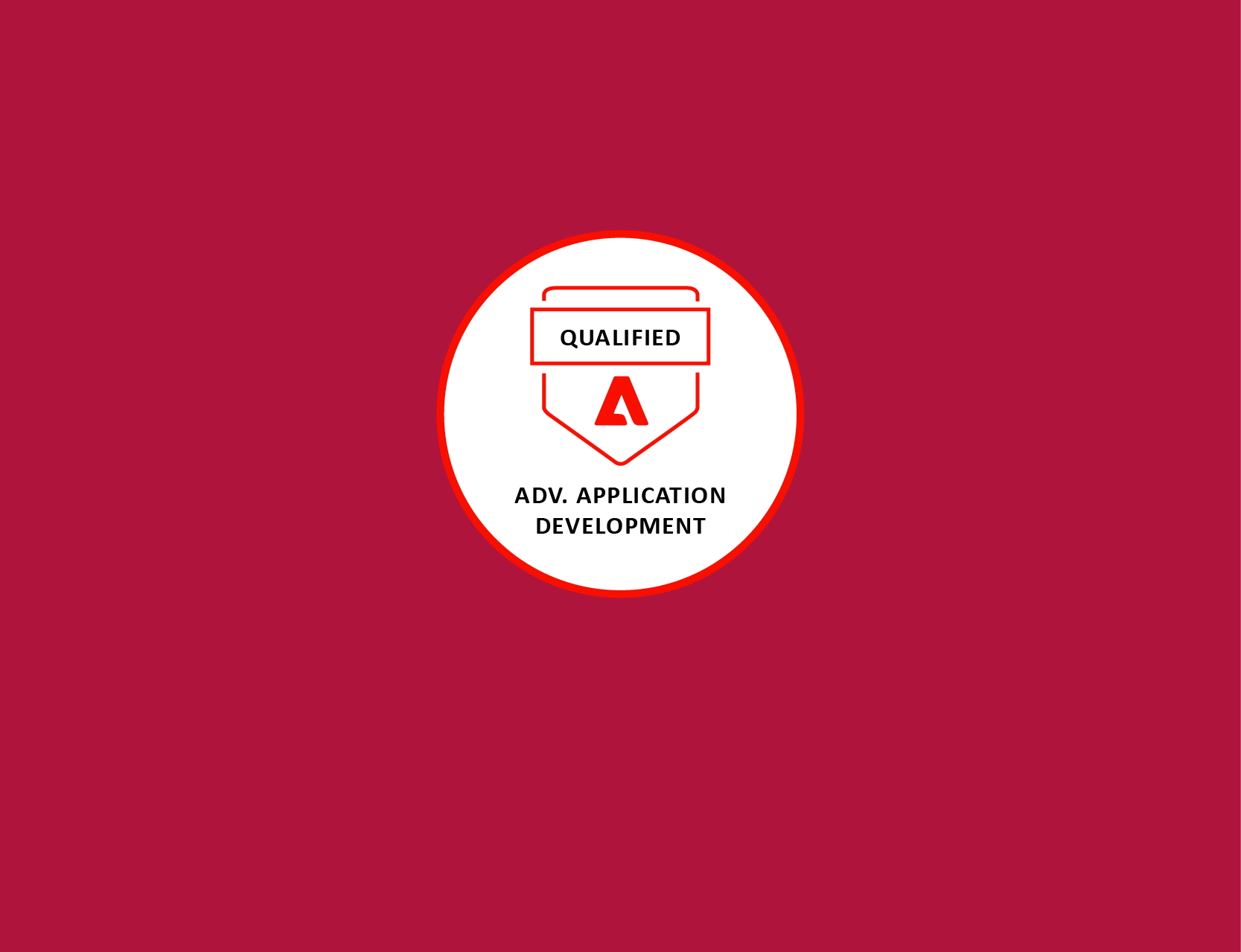Highlight your skills and become Adobe Qualified.
Prove your hands-on experience and gain a competitive edge in your industry by earning a credential through the Adobe Qualified Credential Program.

Prove your hands-on experience and gain a competitive edge in your industry by earning a credential through the Adobe Qualified Credential Program.
This master–level certification is designed for learners who are ready to take their programming expertise to the highest level. Focusing on advanced application development, this certification covers essential technologies such as PHP 8, Python, and game development with Pygame. Through hands–on, project–based learning, learners will gain the skills to build robust applications, dynamic websites, and interactive digital experiences.
From mastering PHP for web development to diving into Python–based projects, this level equips learners with the ability to develop efficient, scalable, and professional–grade applications. Whether aspiring to create high–performance software, immersive games, or powerful web applications, graduates will be prepared to excel in the fields of software engineering, game development, and advanced programming solutions.
Level 9: Advanced Application Development is designed for learners with strong programming skills who are ready to master advanced techniques in software development. It is ideal for individuals passionate about building high–performance applications, dynamic websites, and interactive digital experiences using technologies such as PHP, Python, and game development with Pygame.
This certification provides learners with the expertise needed to develop complex, scalable applications. With a focus on professional–grade software solutions, web development, and game programming, it enhances problem–solving abilities and prepares learners for advanced roles in software engineering, game development, and digital innovation, opening doors to exciting opportunities in the tech industry.
Level 9: Advanced Application Development is a high–level, hands–on certification programme designed to equip learners with the expertise to develop complex, scalable applications. This modular programme covers essential technologies, including PHP, Python, and game development with Pygame, enabling learners to build dynamic software solutions, interactive web applications, and engaging digital experiences.
With a flexible structure, learners can progress at their own pace, gaining in–depth knowledge of advanced programming techniques, server–side logic, database management, and game development. Through practical, real–world projects, they will refine their problem–solving abilities and strengthen their coding proficiency. This certification prepares learners for specialised roles in software engineering, game development, and digital innovation, providing them with the skills to excel in the ever–evolving tech industry.
There are four modules:
Each module in the Level 9: Advanced Application Development certification is assessed through a combination of practical projects, coding challenges, and real–world application development tasks. Learners will have the opportunity to apply advanced concepts in designing, developing, and deploying complex applications, demonstrating their proficiency in various advanced development technologies and frameworks. This flexible approach enables learners to progress at their own pace, focusing on areas that align with their career goals or personal interests within the application development field.
Upon successful completion of all modules, learners will be awarded the Adobe Qualified Application Developer – Level 9 Certification.
There is no Pass or Fail. Results are reported in Bands 1–4, with Band 4 representing the highest level of achievement. Band 1 indicates a foundational understanding of advanced application development concepts; Band 2 reflects proficiency in implementing key application features and integrating multiple technologies; Band 3 demonstrates advanced capability in building and optimizing scalable applications; and Band 4 signifies exceptional mastery in application development, with the ability to create highly innovative, efficient, and secure applications.
Level 9: Advanced Application Development is tailored for individuals seeking to deepen their expertise in building complex, scalable, and high–performance applications. This level focuses on advanced development techniques, including system architecture, optimization, and cutting–edge technologies to build applications that are not only functional but also efficient, secure, and adaptable.
It is suitable for learners who are: